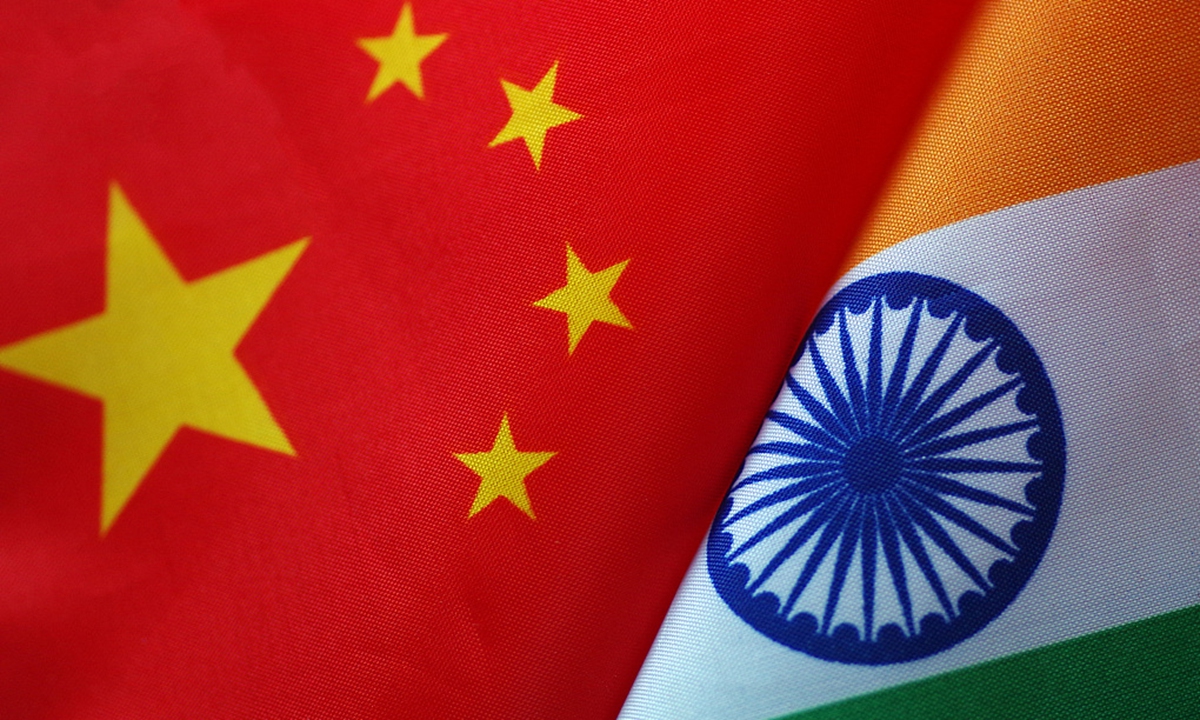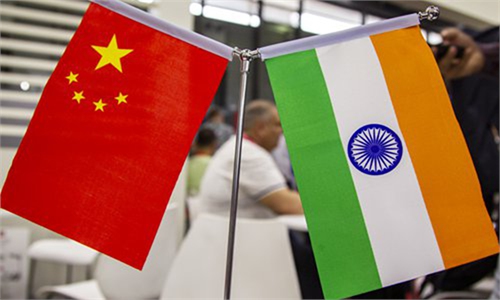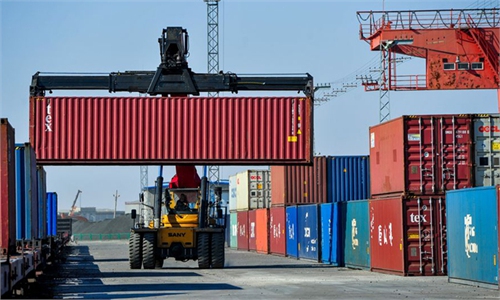
China India. Photo: VCG
China and India held the 13th round of corps commander-level talks on Sunday. The Chinese People's Liberation Army (PLA) Western Theater Command released a statement early Monday morning, saying that China has made tremendous efforts to ease and calm the border situation, while India insisted on unreasonable and unrealistic demands, adding difficulties to the negotiations. The PLA Western Theater Command also said in the statement that China's determination to safeguard sovereignty is unwavering, and China hopes India will not misjudge the situation.The Indian side also released a statement later on Monday, adhering to the wrong definition of the border situation and declaring that the tension in the western section of the China-India border "had been caused by unilateral attempts by the Chinese side to alter the status quo, and violated the bilateral agreements." However, the "status quo" that India referred to is to legitimize their continuous encroachment on Chinese territory. India's statement said the "resolution of the remaining areas would facilitate progress in the bilateral relations." This shows the Indian side's current attitude of linking border disputes with overall China-India relations and trying to coerce the Chinese side to make concessions.
The situation in the China-India border area has generally calmed down. There has been no new bloodshed after the Galwan Valley conflict. Judging from the latest statements of the Chinese and Indian militaries, both sides have the wish to maintain peace in the border area and stability along the Line of Actual Control. They do not want to escalate confrontation.
However, the border issue between China and India remains stuck. The root cause is that Indian side still hasn't developed a correct attitude in the negotiations. It always makes unrealistic demands not in line with the real situation or its strength.
India's attitude in the negotiations is opportunistic. New Delhi assumes that China needs India's help because of China's desire for stability in its western borders to achieve its overall national strategy. In particular, India sees the deterioration in China-US relations as an opportunity to gain key strategic bargaining chips. New Delhi anticipates Beijing softening its stance over the border issue and yielding to its demands to prevent New Delhi from aligning itself with Washington against Beijing.
Such an opportunistic attitude has lowered India's status in international politics as a major power, because this tactic will not work between great powers. The border issue is related to the dignity of all nations. So when border conflicts occur between two major countries, it needs to be managed based on major power relations. And for any of these countries, trying to coerce the other side to make concessions not in line with the real situation and detrimental to its national interests creates a problem for itself. This is because its goal is impossible to achieve, and will only create trouble for itself.
The Galwan Valley conflict proves that China will not hold back from taking action to safeguard its territorial sovereignty for the sake of easing China-India relations. If New Delhi continues to misjudge the underlying dynamics between China and India and underestimate China's resolve and determination, it will only create new misinformation for itself and expose India to further losses.
The Chinese people know that both China and India are great powers with enough national strength to sustain a long-time border standoff with each other. Such mutual attrition is regrettable, but if India is willing to do so, China will keep it company until the end. New Delhi needs to be clear about one thing: it will not get the border the way it wants. If it starts a war, it will definitely lose. Any political maneuvering and pressure will be ignored by China.
Border issues are the disputes most difficult to resolve. Under modern conditions, wise countries will allow certain border frictions to exist, but will manage those frictions well, putting them in a proper position and prevent them from becoming everything about relations between states. Border disputes can easily detonate public opinion and spur patriotism in any country, but may kidnap a country's foreign policies.
India is indulging itself this way. It has lackluster abilities, but has turned itself into a "superpower of patriotism." In addition to border disputes with China, India also often raises unreasonable demands over other issues.
In handling the border dispute with India, it is of the utmost importance for China to do two things. First, we should stick to the principle that no matter how India makes trouble, China's territory belongs to China and we will never cede it. The second is to be patient and be prepared for a military struggle in the event of a deteriorating scenario, but do our best to maintain peace in the China-India border area. India is still sleepwalking on the border issue. We can wait for it to wake up.



